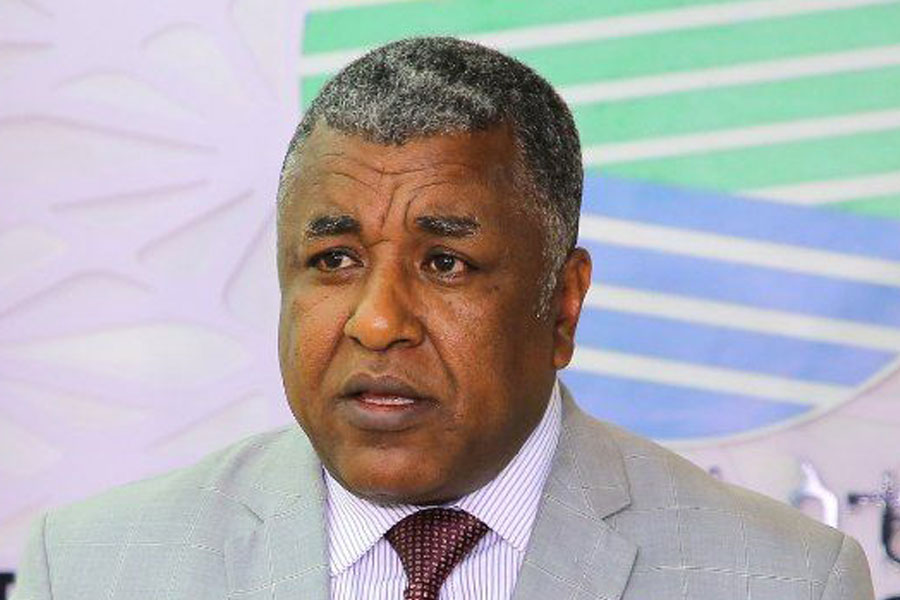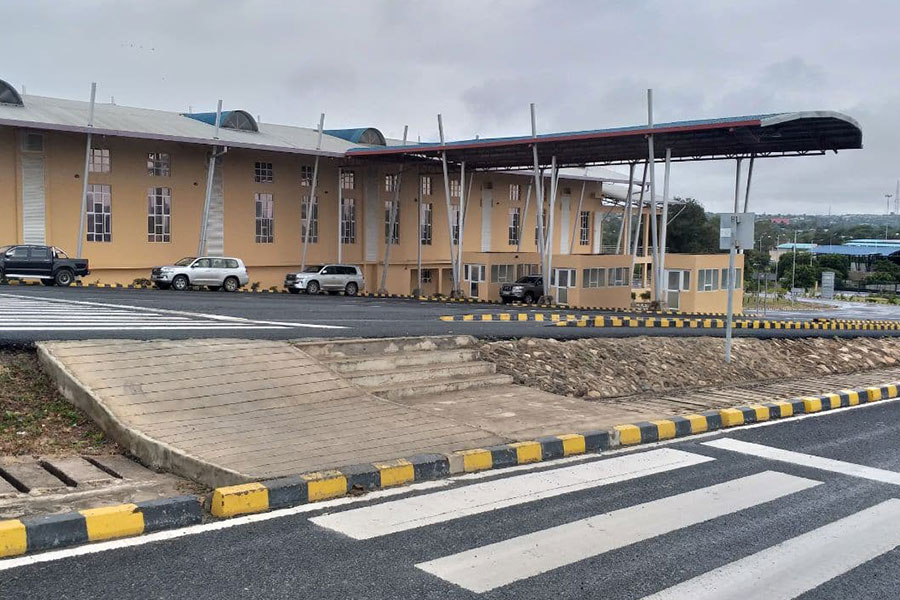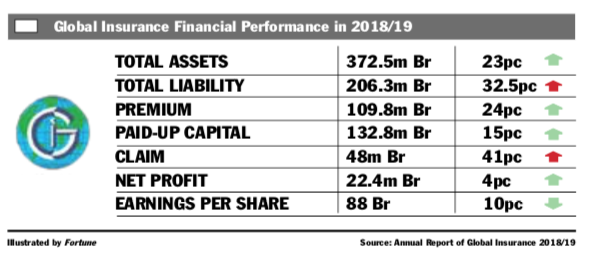
Nov 21 , 2020
By Syed Munir Khasru
The post-1945 paradigm of external development finance has been primarily driven by the developed countries of the Global North and shaped by their geopolitical agenda. But the COVID-19 pandemic offers developing countries the chance to reinvent and reboot their economies and shake off the disabling legacy of foreign aid dependency, writes Syed Munir Khasru, chairman of the Institute for Policy, Advocacy & Governance (IPAG), an international think tank.
The Novel Coronavirus (COVID-19) continues to have a devastating impact on public health and to rattle the global economy with structural shocks. The pandemic has now killed more than one million people, while the International Monetary Fund (IMF) estimates that global GDP will shrink by 4.4pc in 2020. But strange as it may seem, the current crisis could offer developing countries a path toward greater economic self-reliance.
This is partly because developed countries have in general borne the brunt of the pandemic’s health effects so far. Many advanced Western economies have experienced more COVID-19 cases and deaths relative to their populations than have developing countries of the Global South, despite their superior healthcare systems and stronger social safety nets. For example, India’s health system ranks 112th globally, while that of the United States ranks 37th. But whereas India has so far reported about 6,400 COVID-19 cases per million population, America’s tally is more than four times higher.
Some developing countries like Vietnam combated COVID-19 effectively by introducing strict testing, tracing and quarantine measures at a very early stage – something most developed countries failed to do. Even after allowing for possible underreporting and data inaccuracies in poorer countries, the relative performance of developed economies remains a paradox.
Moreover, development financing has already started to plummet as richer countries focus on engineering domestic post-pandemic recoveries. The OECD estimates that external private finance inflows to developing economies could decrease by 700 billion dollars year-on-year in 2020, exceeding the impact of the 2008 global financial crisis by 60pc. Non-resident portfolio outflows from emerging markets totalled 83.3 billion dollars in March 2020 alone, according to the Institute of International Finance. And the OECD thinks global foreign direct investment (FDI) will drop by at least 30pc this year, with flows to developing economies likely to fall even more. Such trends imply a grim outlook for Global South countries that historically have largely relied on development aid from the Global North.
But studies have shown that development aid and humanitarian assistance do not necessarily foster economic empowerment. A recent OECD survey found that between 48pc and 94pc of respondents in developing countries do not believe that humanitarian assistance helps them to become economically self-reliant. People want financial autonomy, not prolonged assistance.
The debate over the effectiveness of development aid is an old one, with critics claiming that rich countries use aid as a tool to exploit developing economies’ resources, and often attach conditions to ensure that donors reap the bulk of the export receipts. But many developed countries have lost much of their soft power because of their shambolic pandemic responses.
Even before COVID-19 struck, many developing economies had been looking for ways to make a sustainable shift from aid dependency to self-reliance. In 2018, Rwanda banned second-hand clothes imports with the aim of encouraging its domestic textile industry to produce higher value-added garments; the US responded by ending the country’s duty-free export privileges. And last year, the United Kingdom’s government allocated part of its 14-billion-pound aid budget to capacity-building projects intended to help developing countries increase their international trade and attract FDI.
Today, developing countries have more opportunities to become self-reliant. For starters, trade in developing East Asia has declined less sharply than in the West during the pandemic, according to the World Trade Organisation (WTO). A key reason for this is that industries producing high value-added goods usually suffer more during downturns. Developing countries’ greater resilience, stemming from their reliance on low value-added manufacturing, is evident in Vietnam’s textile and garment sector, which has remained operational throughout the pandemic and is expected to have a swifter recovery in 2021 compared to their regional competitors.
Second, digitisation will play a crucial role in the post-pandemic recovery by significantly boosting e-commerce, which implies a fairer competitive playing field for producers around the world. Bangladesh’s e-commerce sector grew by 26pc year-on-year by August, and other South Asian countries show a similar trend.
Third, the healthcare and pharmaceuticals sectors are expected to thrive in the post-pandemic economy as people become more aware of the importance of health and fitness. Least developed countries can take advantage of World Trade Organisation provisions by producing more generic drugs, which face no patent-related obstacles.
Finally, governments in the Global South can mobilise domestic resources to offset the decline in external development finance – in particular by transforming their tax policies to generate revenue from fast-growing digital economic activities. Currently, developing countries’ low levels of tax revenue as a share of GDP – typically between 10-20pc, compared to 40pc in high-income countries – hinder development by constraining governments’ ability to invest in public goods like health, infrastructure and education.
Developing countries face several hurdles on the path to self-reliance, not least poor governance, unfavourable business climates, and civil conflicts. But they also must break with the post-1945 paradigm of external development finance, which has been primarily driven by the Global North and shaped by its geopolitical agenda. For far too long, developing countries have had to listen to lectures from those who think they know better. Today, developing-country governments must chart a development agenda that is free from donor conditionality.
Every crisis contains great opportunities, and the COVID-19 pandemic is no different. It offers developing countries nothing less than the chance to reinvent and reboot their economies – and to shake off the disabling legacy of external aid dependency.
PUBLISHED ON
Nov 21,2020 [ VOL
21 , NO
1073]


Fortune News | Nov 03,2024

Featured | Sep 10,2021

Viewpoints | Sep 10,2023

Viewpoints | Apr 06,2024

Fortune News | Mar 28,2020

Viewpoints | Dec 09,2023

Viewpoints | Jul 23,2022

Commentaries | May 06,2023

Featured | Nov 21,2020

Radar | May 15,2021

My Opinion | 131656 Views | Aug 14,2021

My Opinion | 128020 Views | Aug 21,2021

My Opinion | 125983 Views | Sep 10,2021

My Opinion | 123607 Views | Aug 07,2021

Dec 22 , 2024 . By TIZITA SHEWAFERAW
Charged with transforming colossal state-owned enterprises into modern and competitiv...

Aug 18 , 2024 . By AKSAH ITALO
Although predictable Yonas Zerihun's job in the ride-hailing service is not immune to...

Jul 28 , 2024 . By TIZITA SHEWAFERAW
Unhabitual, perhaps too many, Samuel Gebreyohannes, 38, used to occasionally enjoy a couple of beers at breakfast. However, he recently swit...

Jul 13 , 2024 . By AKSAH ITALO
Investors who rely on tractors, trucks, and field vehicles for commuting, transporting commodities, and f...

Jun 28 , 2025
Meseret Damtie, the assertive auditor general, has never been shy about naming names...

Jun 21 , 2025
A well-worn adage says, “Budget is not destiny, but it is direction.” Examining t...

Jun 14 , 2025
Yet again, the Horn of Africa is bracing for trouble. A region already frayed by wars...

Jun 7 , 2025
Few promises shine brighter in Addis Abeba than the pledge of a roof for every family...

Jun 29 , 2025
Addis Abeba's first rains have coincided with a sweeping rise in private school tuition, prompting the city's education...

Jun 29 , 2025 . By BEZAWIT HULUAGER
Central Bank Governor Mamo Mihretu claimed a bold reconfiguration of monetary policy...

Jun 29 , 2025 . By BEZAWIT HULUAGER
The federal government is betting on a sweeping overhaul of the driver licensing regi...

Jun 29 , 2025 . By NAHOM AYELE
Gadaa Bank has listed 1.2 million shares on the Ethiopian Securities Exchange (ESX),...